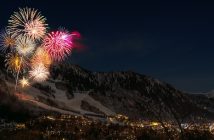The Southbank is an interesting place. It is the intersection of so many different parts. There is Waterloo Station with the swarms of commuters who are disgorged every morning and swallowed back up every evening. There is the Southbank Arts Centre itself with its theatres and concert halls, galleries and cinemas. There are the skateboarders under the car park with their tins of aerosol paint, lounging in groups. There is the Palace of Westminster to the west, the city and St Pauls’ to the east – the birthplace of modern democracy, the seat of political power coupled with international finance and religion. A lot of power. Too much probably. And scuttling in between, the ordinary people, powerless on the whole.
On the south side you have theatre-goers, promenaders, office workers, tourists and then, jammed in between like grit in the machine, those that have no natural place – tramps, buskers, impoverished immigrants.
On the night I was wheeling my bike back from Waterloo, crossing from south to north along the footbridge, a solitary saxophone player was rending the night air with his plaintive song. He was leaning against the railings separating the path from the drop to the cold moving waters of the Thames, one foot up behind him in classic pose, his soft instrument case spread before him to gather the manna.
He stopped, came to the end of a song, and the night’s soundtrack – so fitting – was interrupted. I continued up the steps to the bridge and the music started up again.
The footbridge spans the enormous anaconda-like girth of the Thames in shortening perspective, pools of white light dotting the retreating concrete path from the overhead arc lights like discs of limelight on a long and repeating stage. Hustled to one side of one of these haloes, somewhat apologetically, in shame perhaps that his work needed to be exhibited in such circumstances, was an artist. His paintings were displayed on a trolley – pictures of London; picture postcards on small canvases. Although, as compositions they were imitative, they possessed a dark, rather gothic grandeur which appealed to me. But there was little soul in them; they were designed for the tourist market and the artist himself was wearing a beret, almost in self-parody. No, I was wrong. There was no shame here, just a world weariness and creeping cynicism. When I attempted to engage him in conversation, to express an interest, he merely grunted in response to my question, that the medium was acrylic. Something had taken his attention, something more interesting than faltering conversation and a possible sale to some passing shadow.
Under the next light a crowd was gathered, picked out like figures on a stage in stark chiaroscuro against the black fathoms surrounding the bridge. The artist was on his feet, shuffling towards this scene, gummed cigarette paper being rolled between his fingers, drawn to activity and energy like a moth to flames.
There was something strange and illicit about the group, something otherworldly. I followed the artist, a little put-out that he had spurned my interest. The group grew larger, more animated but somehow also more artificial as though they were not people but puppets. I was going to pass by, in the manner of Londoners ignoring the antics of street performers and buskers as being fit only for tourists, but instead I paused at the edge, sufficiently removed to indicate that I was curious but not taken in.
A small stocky man in council estate sportswear and a blue baseball cap was hunched over a cardboard platform which had three small tumblers on it. He was revolving these glasses with disconcerting speed and dexterity using only one hand. His other emerged twisted and deformed like a claw from the arm of his cheap denim jacket. In it was clutched a sheaf of twenty pound notes.
“Give me twenty, find the white spot, you get forty. Round and round it goes.”
He had a strong Eastern European accent. Romanian perhaps. Was he a Romany?
“Round and round it goes. Twenty, you get forty.”
He seemed to be casting a spell. There was something unnerving about him, from his heavy accent, his shaded eyes, his diminutive frame and his roving hands. Next to him stood a muscular man of about forty who seemed to be acting as some kind of bodyguard. His face was rough hewn as a cliff face with a nose bashed and off-centred as a prize fighter’s. He stood four square, his brown tattooed arms thrust into the pockets of his white tracksuit trousers. His small beady eyes twinkled with mirth and roamed gaily over the transfixed crowd.
“Round and round it goes. Give twenty, get forty.”
A dark woman, gypsy-looking herself, handed over a note. She was craned forwards, a look of concentration on her face, as though on starting blocks.
The prestidigitator rotated the tumblers. She pointed to one. He flipped it over. It was blank underneath.
“Ahhh!”
The woman’s face fell. He revolved the glasses as though the movement of these tiny spheres was as sure physically as the movement of the spheres in the heavens.
“Round and round it goes.”
The woman flipped out another note from her black purse and the claw snatched it away. She seemed to be the only one betting.
“Give twenty, get forty.”
“Do you take cards?”
A smartly dressed man in a mac stepped forwards and waggishly brandished his wallet. He had a large growth on the side of his head, the size and texture of a new potato. I looked more carefully at the shining faces with their shining eyes turned in towards the dwarfish Mesmer. Almost to a man they seemed misshapen, grotesque even. Three men, Dutch I think, stood near me. They were of differing heights with long Pinocchio noses set at different angles. A callow youth, dressed like the bodyguard in white sleeveless tee-shirt, turned towards me. He had a face like a pear with black lynx-like eyes. The artist stood at the furthest side, smoking impassively.
“Round and round it goes.”
The Gypsy woman thrust a finger at one of the glass orbs. The wizard spun it over. Beneath was a circular white card. The woman’s face creased in two with a triumphant smile. The wizard handed her forty pounds without a flicker of loss.
I dragged myself away.
“Round and round it goes.”
I glanced back at the puppets nodding and grinning in the circle of light on the long bridge over a mighty river.
Illustrations by the author.




